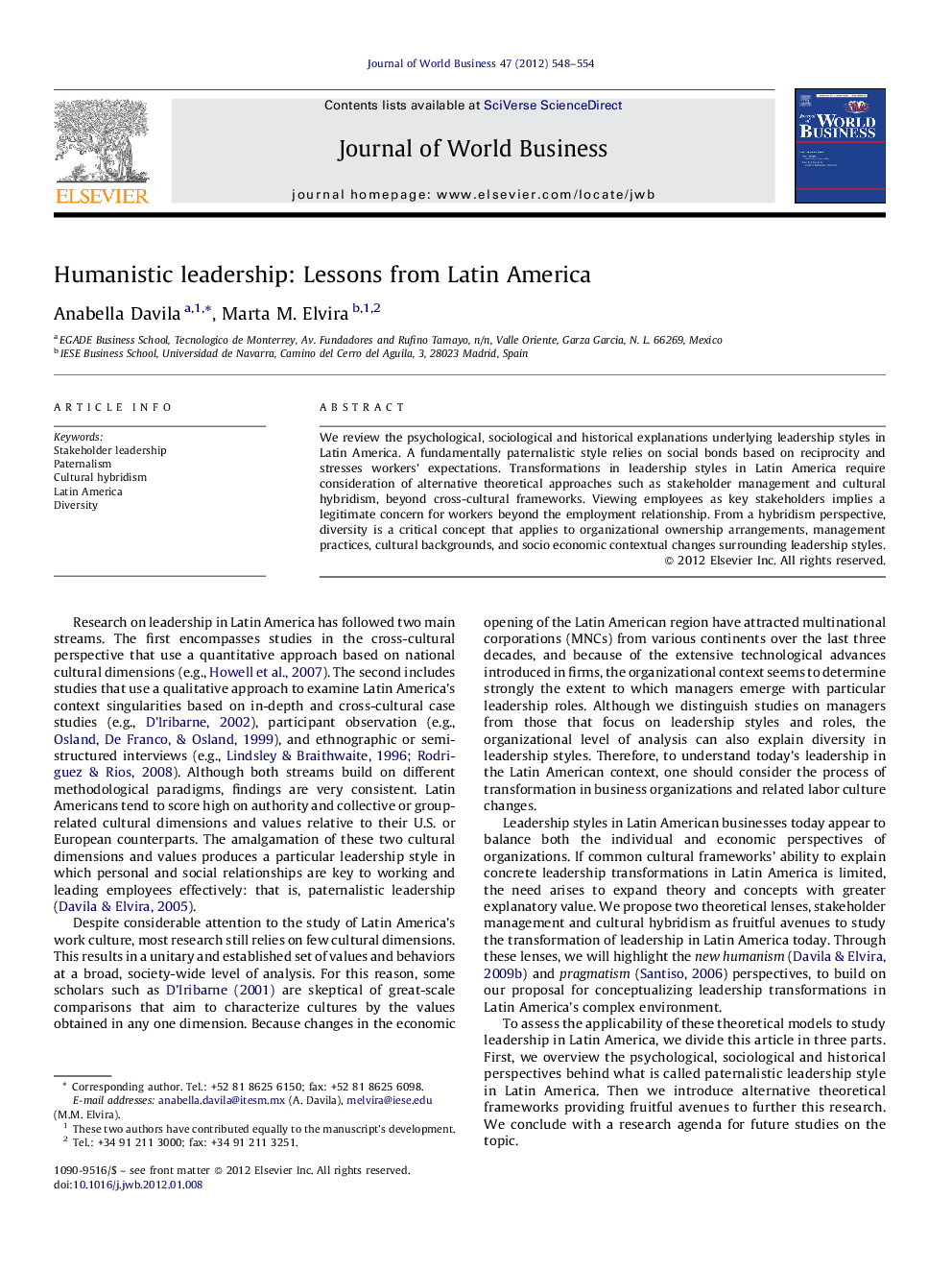| Article ID | Journal | Published Year | Pages | File Type |
|---|---|---|---|---|
| 1001542 | Journal of World Business | 2012 | 7 Pages |
We review the psychological, sociological and historical explanations underlying leadership styles in Latin America. A fundamentally paternalistic style relies on social bonds based on reciprocity and stresses workers’ expectations. Transformations in leadership styles in Latin America require consideration of alternative theoretical approaches such as stakeholder management and cultural hybridism, beyond cross-cultural frameworks. Viewing employees as key stakeholders implies a legitimate concern for workers beyond the employment relationship. From a hybridism perspective, diversity is a critical concept that applies to organizational ownership arrangements, management practices, cultural backgrounds, and socio economic contextual changes surrounding leadership styles.
